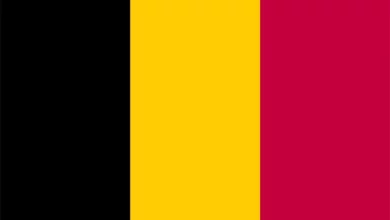
10 Nigerian Startups to Watch: 2023-2025
The Nigerian startup ecosystem has seen significant growth in recent years and is one of the most vibrant in the world.
It is home to a number of innovative startups that are overcoming the present challenges and attracting attention from venture capitalists and other business-minded individuals.
In this article, we will discuss 10 Nigerian startups that are worth watching out for in 2022. These startups are addressing a range of issues, from cryptocurrency and cash transactions to training tech talents.
10 Innovative US Startups to Watch
1. Bundle Africa
Bundle Africa is a social payment technology startup that enables cryptocurrency and cash transactions. Founded in 2019 by Yele Bademosi, the company is helping drive crypto adoption on the continent by making it more fun, easy to use, and inclusive for Africans.
It currently employs 60 people and is headquartered in Lagos.
2. Utiva
Utiva is an educational technology startup founded in 2017 by Eyitayo Ogunmola. It provides training services to startups and businesses, connecting them with tech talents and providing them with live virtual classes.
Utiva was selected among the Winners of Facebook’s $3m Community Accelerator in 2021 and currently has 55 full-time employees.
3. Okra
Okra is an API “super-connector” that builds a secure portal and procedure to exchange real-time financial information between customers.
The startup was founded in 2019 by Chijioke Dozie and is based in Lagos. It currently employs 70 people, and its largest job functions are engineering, customer care, and support.
How to Start a Business with Zero Capital
4. Moove
Moove is a ride-hailing startup that is focused on providing safe and reliable rides to Nigerians. Founded in 2020 by Oluwaseun Ogunrinde, the startup has quickly become one of the preferred options for rides in the country. It currently employs 120 people and is based in Lagos.

5. Cowrywise
Cowrywise is a fintech startup that helps Nigerians take control of their finances.
The startup was founded in 2017 by Odunayo Eweniyi, and it has quickly become one of the most popular financial management solutions in the country. Cowrywise employs 40 people and is headquartered in Lagos.
6. Paystack
Paystack is a Nigerian company that offers a secure online payments platform for businesses, non-profits, and individuals. It provides users with seamless online payment experiences on web and mobile platforms.
Paystack is the perfect solution for individuals and businesses who need a secure, convenient, and cost-efficient way to process payments securely online.
Paystack makes it easy to accept payments from customers all over the world. With powerful features like hosted pages, recurring payments, advanced fraud detection, data export capabilities, and more, Paystack can help businesses efficiently manage their online transactions and grow their organizations.
7 Innovative Startups to Watch in Africa
Additionally, Paystack also offers easy integration with most e-commerce platforms such as Shopify and WooCommerce. With its advanced features and reliable security measures, businesses can rest assured that their customers’ data is safe and secure with Paystack.
7. Flutterwave
Flutterwave is a leading payment gateway and infrastructure platform for businesses and individuals in Africa.
Founded in 2016 by Olugbenga Agboola and Iyinoluwa Aboyeji, the startup is helping to enable transactions and payments on the continent. Flutterwave employs over 400 people and is based in Lagos.
8. Paga
Paga is a financial technology company that enables individuals and businesses to make payments, send money, and access financial services.
Founded in 2009 by Tayo Oviosu, the startup has grown to become the leading payments provider in the country. Paga currently employs 300 people and is based in Lagos.
How to Use Social Media to Increase Startup Brand Awareness
9. Hubmart
Hubmart is a retail chain providing consumers with groceries and other items at affordable prices. Founded in 2018 by Obi Ozor, the startup has become one of the leading retail chains in Nigeria.
Hubmart currently employs 350 people and is headquartered in Lagos.
10. Kwik Delivery
Kwik Delivery is a logistics startup that provides same-day delivery services to customers. Founded in 2017 by Paul Ogbeifun, the startup has become one of the leading logistics companies in the country.
Kwik Delivery currently employs over 400 people and is headquartered in Lagos.
STARTUP CROWDFUNDING STRATEGIES
An Overview of the Nigerian Startup Environment
The Nigerian startup environment is one of the most vibrant ecosystems in all of Africa. With a population of over 200 million people and a GDP of nearly $400 billion, Nigeria is an attractive destination for startups and entrepreneurs alike.
The country has seen an influx of foreign investment and a rise in local entrepreneurship since the late 1990s.
In 2019, Nigeria was named the 5th most entrepreneurial country in the world. This is due to the large number of innovative startups that are being created and thriving within the country’s boundaries.
This entrepreneurial spirit has been further bolstered by a strong government support and development of policies to promote innovation and foster business growth.
There are also several venture capital firms investing in promising ideas and helping to drive innovation and progress within the economy. With an estimated 43% of Nigerian adults engaged in some form of digital commerce, the country is rapidly becoming a hotbed for technology-driven business development.
The Nigerian startup landscape is highly diverse, with innovative companies in various industries such as health care, finance, education, retail, agriculture, telecommunications and more. Many Nigerian startups have achieved global success, with successful exits such as Konga, Andela and Jumia.
Innovations such as Fintech, Edtech, Agtech, AI/ML and blockchain are driving the industry forward. This includes products such as Paystack, Farmcrowdy and Crowdyvest which are changing the way Nigerians pay for goods and services online and helping to provide access to financial services to those in rural areas.
The Nigerian startup ecosystem is characterized by a vast array of resources for entrepreneurs. Accelerators such as Co-Creation Hub (CcHub) provide mentorship, learning opportunities and resources for startups to grow.
The government provides additional support for startups through organizations such as Nigeria Investment Promotion Commission (NIPC) which provides tax incentives for investors and entrepreneurs alike.
In recent years there has been an increased interest from foreign investors in African startups, particularly those from Nigeria. This influx of capital has been instrumental in driving innovation and fueling growth within the Nigerian startup ecosystem.
Challenges of Startups in Nigeria
Nigeria is a rapidly developing nation with an economy that is quickly growing. This has led to an influx of startups in the country, with many entrepreneurs trying to create innovative and unique products and services.
However, starting a business in Nigeria is not without its challenges. In this blog post, we will take a look at the challenges of startups in Nigeria.
1. Infrastructure
Infrastructure is one of the biggest challenges for startups in Nigeria. The poor state of roads and bridges, lack of access to electricity, water, and other basic utilities, slow or outdated internet connections, and generally low-quality infrastructure makes it difficult for startups to operate effectively and efficiently.
This poses a huge problem for those trying to start new businesses as it limits their ability to build a solid foundation for growth.
2. Capital
Capital is often the biggest challenge facing entrepreneurs in Nigeria as the cost of running a business can be quite high due to all the overhead costs involved such as rent, staff salaries, and so on.
Most startups don’t have access to startup capital from venture capitalists and banks which can make it difficult for entrepreneurs to get off the ground.
3. Legal & Regulatory
Setting up a business in Nigeria can be an incredibly complicated and lengthy process due to the various levels of bureaucracy and the various regulations that need to be followed.
This makes it particularly difficult for someone without experience or knowledge of how to start a business in the country.
4. Talent
Many startups struggle to find talented personnel as many qualified individuals prefer working for established companies that offer more stability and job security rather than taking risks with a startup.
Moreover, many of the available employees are often lacking in technical or specialized skills that would help the business grow and succeed.
5. Poor Networking & Mentoring
Many startups in Nigeria lack access to mentors or experienced business leaders who can provide guidance when needed. Networking events are also few and far between, leaving entrepreneurs without an effective way of connecting with potential business partners or finding investors.
These are just some of the challenges facing startups in Nigeria. Although there are several programs aimed at reducing these problems, such as government initiatives aimed at providing funding for entrepreneurs and creating infrastructure, it’s clear that there is still much work to be done if startups are to succeed in the country.
Conclusion
Overall, these startups are revolutionizing the Nigerian startup ecosystem and paving the way for a successful future. With their innovative solutions and commitment to helping others, there is no doubt that these startups will continue to attract attention in 2022 and beyond.
The Nigerian startup environment is one that is rapidly evolving to meet the demands of the future. With a large population, strong government support and access to investment capital all on a single continent, Nigeria provides tremendous potential for businesses to innovate and succeed.
It’s no wonder then that this is one African country that is attracting a lot of attention from investors around the world.
Follow STARTUP GIA
Follow us on LINKEDIN
MUST HAVE SKILLS FOR A STARTUP FOUNDER
STARTUP CROWDFUNDING STRATEGIES
How to Use Social Media to Increase Startup Brand Awareness




